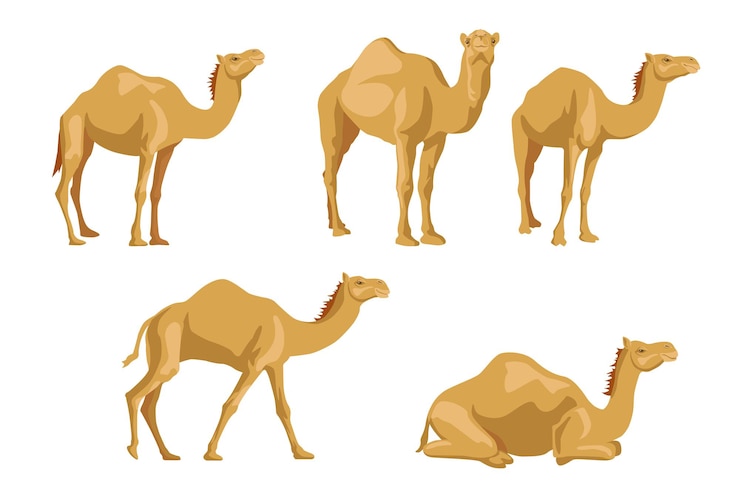
Camel milk comes with a variety of health benefits, making it a unique alternative to other types of milk. It contains significantly more vitamin C than cow’s milk—up to two to three times more—which makes it a valuable source of this vitamin, especially in desert regions where other sources of vitamin C may be hard to grow. Camel milk also provides similar levels of vitamin E when compared to cow’s milk and contains some vitamin A, although in lower quantities.
A Nutrient-Packed Milk
1. Rich in Essential Minerals
Camel milk is a good source of vital minerals like calcium, iron, and zinc, which support bone health, enhance the immune system, and contribute to overall well-being.
2. Provides Healthy Fats
This milk is loaded with healthy fats such as long-chain fatty acids, linoleic acid, and unsaturated fatty acids, which are beneficial for heart and brain health.
Though not as commonly consumed worldwide as cow’s milk, camel milk is widely recognized across various countries for its health benefits. Its unique nutritional profile often sets it apart from other milk types.
Key Nutrients of Camel Milk
Camel milk stands out because it has fewer calories and less fat compared to cow’s milk, while also providing higher amounts of vitamin B3, iron, and vitamin C. Additionally, it contains very little lactose, making it a suitable option for individuals with lactose intolerance. Interestingly, its structure is remarkably similar to breast milk, further emphasizing its nutritional value.
Health Benefits of Camel Milk
1. Supports Diabetes Management
Camel milk contains insulin-like proteins that help regulate blood sugar levels, reduce insulin resistance, and lower cholesterol. This makes it beneficial for preventing diabetes and managing its symptoms.
2. Boosts Immunity
The high protein content and anti-inflammatory compounds in camel milk work as natural immune boosters, helping the body fight infections and inflammation.
3. Promotes Liver Health
Camel milk has been found to combat viruses that affect the liver and may improve liver health by reducing elevated liver enzyme levels. It can also rebuild protein levels, which are often low in individuals with liver disease.
4. Potential Cancer Benefits
Some studies suggest that camel milk may assist in fighting cancer by killing cancer cells. Nutrients like vitamins E and C, proteins, and immunoglobulins might play a role in cancer prevention; however, more research is needed to confirm these effects.
5. Helps with Autism Symptoms
Thanks to its nutrient-dense properties, camel milk may support the nervous system and provide relief from symptoms linked to certain autoimmune conditions. Remarkably, regular consumption has been shown to significantly improve autism symptoms in some cases.
6. Eases Allergic Reactions
Studies have linked camel milk with reduced allergic reactions when consumed regularly. Unlike cow’s milk, camel milk rarely triggers lactose intolerance due to its distinctive composition, making it a safe option for individuals with dairy allergies.
7. Supports Heart Health
Rich in healthy fatty acids, camel milk can help improve cholesterol levels by lowering bad cholesterol, which reduces the risk of heart-related issues such as high blood pressure, heart attacks, strokes, and atherosclerosis.
In summary, camel milk offers an impressive range of health benefits and nutrients, making it a superfood worth considering for a healthier lifestyle. While not as widespread as other types of milk, its unique qualities and versatility continue to make it a valued source of nutrition in many cultures globally.